Momofuku Noodle Bar is turning 20. Here are 5 ways chef David Chang changed dining forever
Like it or not, whatever you’re planning to do for dinner tonight, David Chang probably had a hand in it.
An unknown chef named David Chang opened a tiny noodle shop on a rundown stretch of First Avenue in New York. He had just turned 26.
Chang had studied religion at Trinity College before finding an even higher calling: ramen, a dish he discovered while teaching English in Japan. After culinary school, he worked at Craft and Café Boulud, but went home and cooked noodles every night. He began picking up shifts at the East Village ramen house Rai Raken. He simply could not stop thinking about ramen—and owning a place of his own.
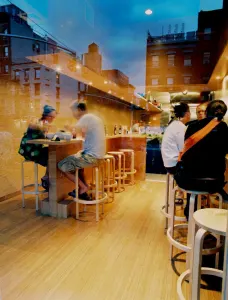
The noodle shop he opened in August 2004, called Momofuku Noodle Bar (after Momofuku Ando, the Japanese-Taiwanese inventor of instant ramen), was spare and boxy, built mostly from planks of butter-colored plywood, with a few tables, an open kitchen and lunch counter where folks could not only see the food being made, but feel it; the heat would be that close. The menu was brief but thoughtful. He put a bottle of Sriracha on every table, turned up the Metallica, opened the doors, and held his breath.
Chang was so insecure that he refused to tell reviewers from New York Magazine his name when they called to fact-check their review. It was glowing.
Over the next 20 years, David Chang’s influence grew beyond the four walls of the restaurant. He launched a meal delivery service, ghost kitchen, packaged goods company, and entertainment platform. He has become so dominant, in fact, that his effort earlier this year to quash competition for Momofuku’s signature condiment, chili crunch, earned him the name “trademark bully.”
But the influence of his original noodle shop—which went on to spawn an empire, with restaurants in New York (two Noodle Bars, and Bang Bar), Las Vegas (Momofuku and Bang Bar) and Los Angeles (Majordomo)—has been undeniable. “There’s no question that Dave has had a material impact on how restaurants have evolved in the last 20 years,” says Ben Leventhal, founder and CEO of Blackbird, and the founder of Resy and Eater.
Here are five ways David Chang’s Momofuku Noodle Bar has changed dining.
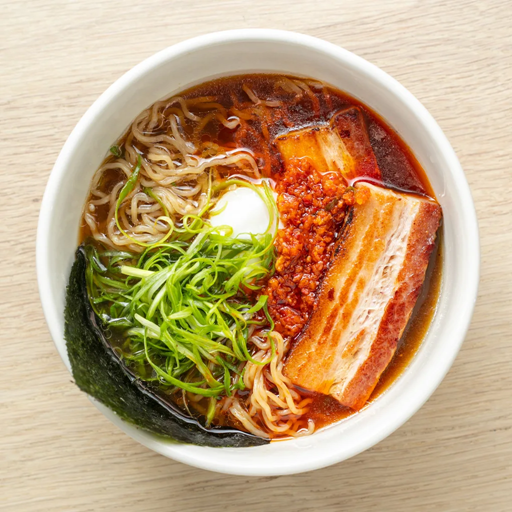
1. There’s way less fuss
David Chang’s restaurants—particularly Noodle Bar, early Ssäm Bar, and Ko—“were some of the first to reject old ideas about what fine dining should be and to propose a new model,” says Leventhal.
Before Noodle Bar, most “fine” restaurants were serene temples of quiet culinary contemplation, with chandeliers and stiff white tablecloths (and waiters). Chang hauled veggies back from the same Union Square Greenmarket as those chefs did, and produced similarly show-stopping results, such as Maine sea urchin with fermented chickpea “hozon” and grated lemon, or aged beef striploin with a spicy green peppercorn, chervil, and Armagnac sauce.
But at Noodle Bar, the cooks bared their sleeve tattoos and listened to Wu-Tang Clan. Wine glasses lacked stems, menu descriptions were spare, and there were certainly no tablecloths. Perhaps most notably, check averages were significantly lower.
“Chang took the traditional model and stripped it down, so the food was the thing,” says Pete Wells, who’s been the New York Times restaurant critic since 2012. “He grabbed it by the ankles and shook it upside down until all of the change came out of its pockets.”
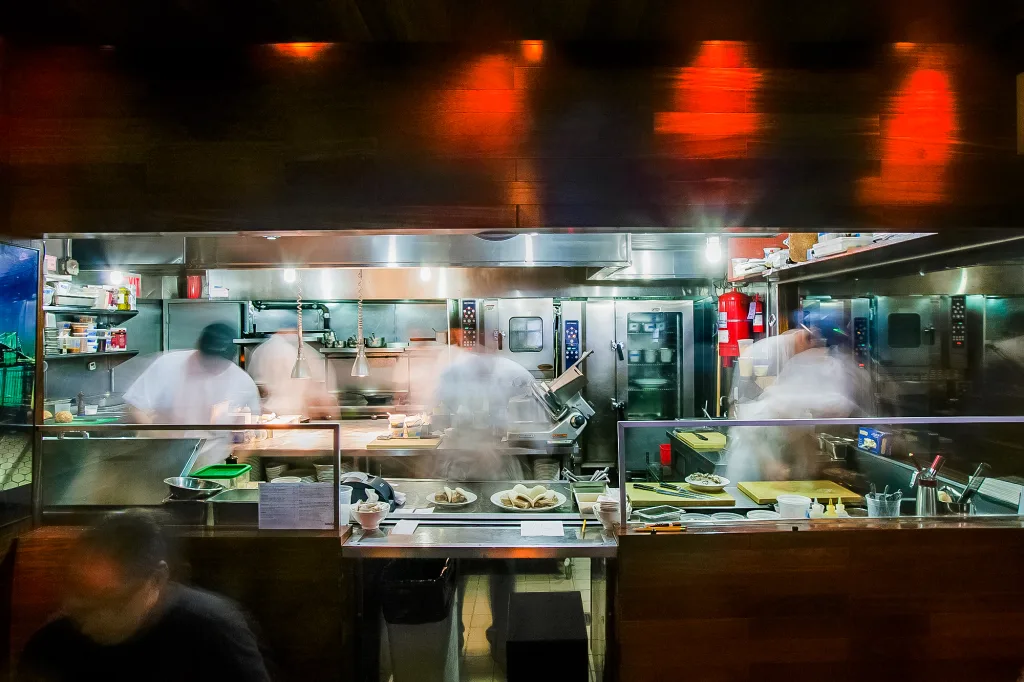
2. The back of the house is now the front
Cooks used to be hidden in basement kitchens, or secreted behind heavy swinging doors. Chang wanted them to see and be seen, building Noodle Bar (and then every other restaurant in his empire) with an open kitchen and chef counters. This proximity of chefs to diners, once solely the provenance of sushi bars, was revolutionary. And it had a purpose.
Not only did guests clamor for the kitchen-adjacent seats, but Chang gleaned important feedback. “Dave wanted his cooks to be able to watch people eat,” says Marguerite Zabar Mariscal, Momofuku’s CEO, who started as an intern in 2011. “He wanted them to know if their guests were not eating the fatty bits, or if the food was too spicy. So he gave them a view.”
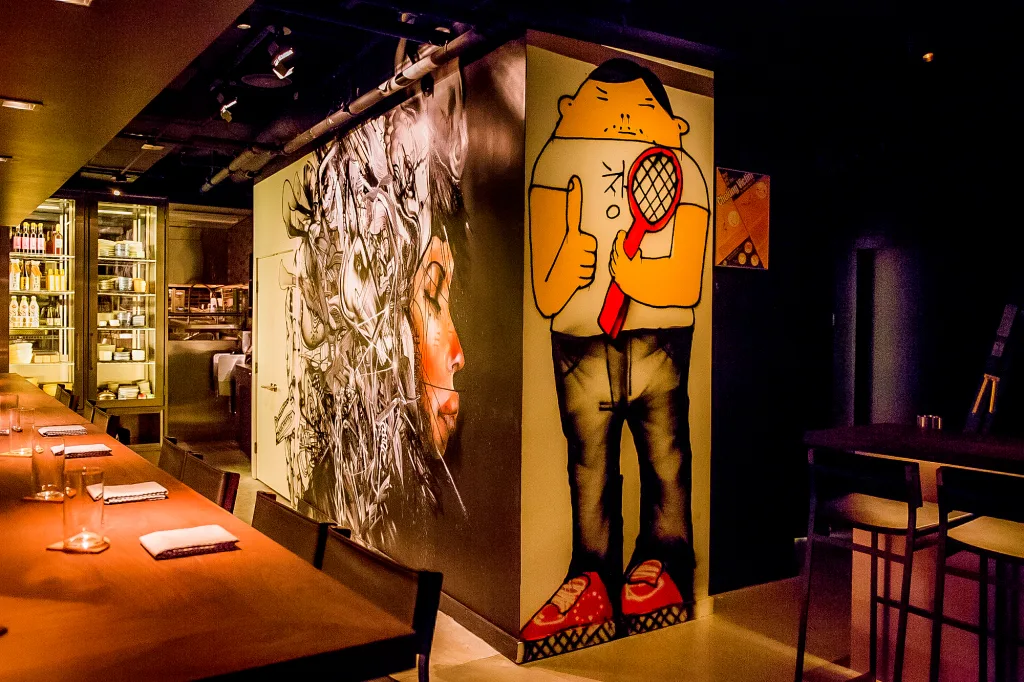
3. Tech has a seat at the table
When Chang opened the higher-end Momofuku Ko, in 2008, he did so without a phone line, a reservationist, or OpenTable—which was, quite frankly, a bonkers proposition for the time.
Instead, he built his own tech, an online reservation system that would release tables for booking only at a specific time of day, making him the industry’s first to understand the relationship between software and supper. “Dave made that conceptual leap away from a person answering the phone and taking reservations,” said Wells. “That was a big change in dining. After Chang’s reservation system went live, your first step in a meal was not to reach for the phone and speak to a person, but to go online and search for a specific time.”
Chang’s reservation system did one other thing: It required guests to pay for dinner in advance, which was unheard of then and is tricky even now. Says Leventhal: “He is fearless.”
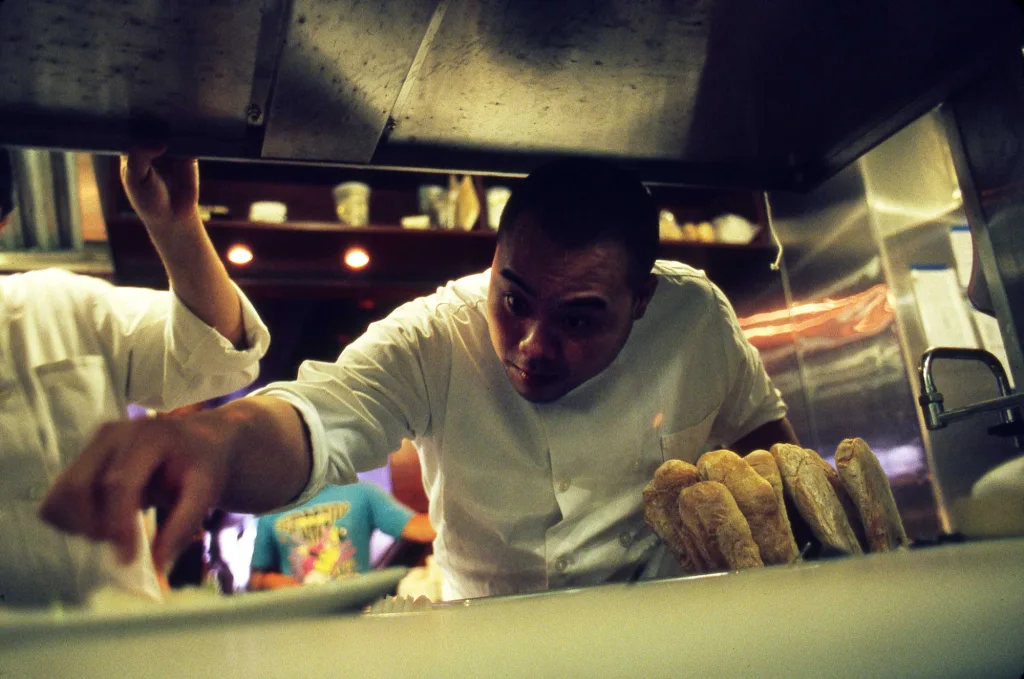
4. Imitators abound—and that’s okay
In an age of social media, where a fried chicken sandwich can go viral in the time it takes to eat it, ideas are ripped off with abandon. Chang saw this clearly. He tried to protect what he could—including the chile crunch trademark, a mission he chose to abandon after encountering significant blowback. But for the most part, he recognized that imitation was flattering, and unthreatening. The value, he knew, was not the idea, but the execution.
It’s why the David Chang empire still flourishes despite the fact that you can’t walk a mile in Chicago or San Francisco without finding a ramen joint designed exactly like Noodle Bar, or a fried chicken sandwich shop with the fiery energy of Fuku, or a chef’s counter in a room adorned by little more than concrete and lightbulbs.
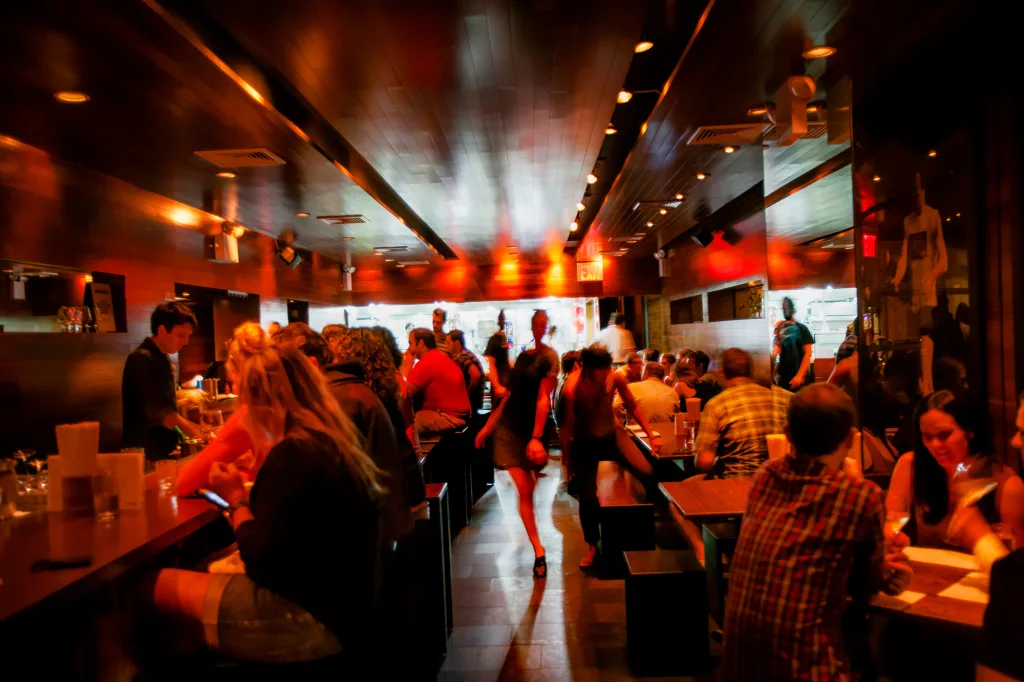
5. Pivoting is good business
Restaurants have always had to be nimble, but the pandemic—and inflation—have accelerated things. Restaurants are now adding new revenue streams, such as prepared foods and pantry items. They’ve built ghost kitchens, created wine clubs, added loyalty apps, and more.
That flexibility was first modeled by Chang, who always treated his various restaurants like chess pieces. “He moved Noodle Bar down the street, and put a fancy spot there. Then he did a fried chicken sandwich place, and a fine-dining Italian concept,” Wells says. “He closed Ko and Ssäm Bar last year, and now he has his place in Los Angeles, two Noodle Bars and Bang Bar in New York and Vegas, and a Momofuku in Las Vegas.”
He launched companion businesses that were often the first of their kind. Take Maple, his chef-made meal-delivery service, which he launched in 2015 and shuttered in 2017; it’s been replicated recently by to-go outlets CookUnity and Wonder. Ando, his ghost kitchen, lasted from 2016 to 2018; you can see its DNA in current companies like Nimbus, Hungry House, and even DoorDash.
“That willingness to abandon a concept and start again, and to shift things around without worrying too much about the consumer getting confused, that started with him,” Wells says.
Perhaps the ultimate pivot was deciding not to enforce his chile crunch trademark. “It could be seen that we are trying to own a piece of Chinese heritage, which is not what we are trying to do,” he said, apologizing to the entire APPI community. “I understand why people are upset and I am truly sorry,” he said. “I am falable. Momofuku is falable.” The flavors live on.
ABOUT THE AUTHOR
Fast Company
(37)